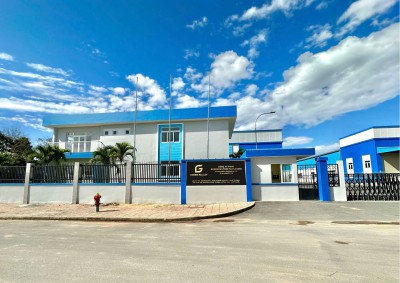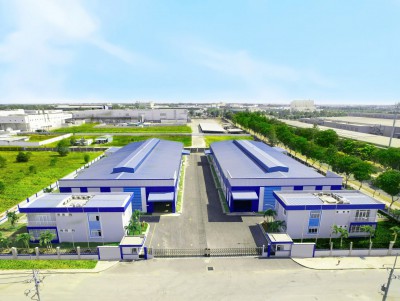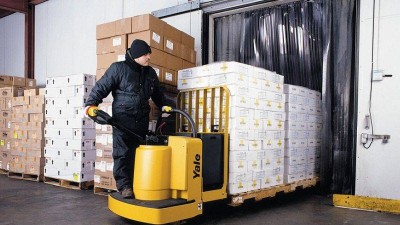Application of RFID technology in logistics and supply chain management
RFID technology in logistics and supply chain management is increasingly used to improve visibility and distribution within the chain.
When a business decides to expand its production operations, the supply chain also develops accordingly. The steps in the chain become more complex. Limited visibility or information errors can cause production delays, leading to significant declines in business results. From there, the importance of accuracy at each link of the supply chain gradually becomes an essential requirement. And this is when RFID radio frequency identification technology comes into play. In fact, many businesses have applied RFID technology as a solution to ensure efficiency in the supply chain and logistics.

RFID Applications in Logistics and Supply Chains
Proper implementation of RFID is fundamental to the proper execution of all activities in the chain from decision making to inventory tracking and distribution. It is easy to find businesses that have systems that apply this technology in logistics and supply chains in many areas such as e-commerce and healthcare.
The modern supply chain opens up countless opportunities for businesses to use RFID in the most important links. Below, we delve into the details related to each supply chain process as well as the potential for RFID applications in the chain.

Seamless Information Across the Chain
In today’s volatile market, supply chains are only effective when supported by seamless information. In addition to being accurate and up-to-date, the information shared must be timely to suppliers, warehouses, and transporters to ensure smooth, seamless operations in all circumstances and environments.
RFID Tags enable efficient integration by quickly capturing important details about materials and products being transported. RFID systems are then designed to seamlessly transfer this data so that relevant information can be received by all parties involved in the supply chain.
Operations & Purchasing
The day-to-day operations of a supply chain play a vital role in determining the efficiency of the supply chain, which directly impacts the profitability of a business. However, monitoring and tracking these activities is not easy. RFID is deployed to address this challenge by providing real-time insights into the daily workflow of the chain. This technology allows businesses to pinpoint where bottlenecks and backlogs occur, and from there, have timely and accurate solutions.
For the procurement stage of the chain, RFID can track the flow of both raw materials and semi-finished products. By equipping RFID solutions, it becomes easier to determine the status of shipments. This application also helps streamline other warehouse management processes by reducing delays in receiving goods.
RFID also plays an important role in maximizing warehouse storage resources. The data collected by these systems can ensure that all items are stored and retrieved in the most efficient way possible, while minimizing the possibility of inventory loss. In addition, real-time data allows for greater accuracy in picking and inventory control, which is considered essential to minimizing waste from manufacturing defective products.
Distribution and Logistics
As products move from their point of origin to their final destination, RFID systems bring many advantages to the distribution process. During this stage, many unexpected problems can arise for distributors, leading to delays, waste, and inefficiencies. These problems are more easily mitigated with the help of RFID.

Take weather and road conditions as an example. These are two conditions that can cause derailment of vehicles. With RFID solutions, businesses can address this issue and ensure shipments are delivered on time thanks to real-time tracking and information collection, thereby providing corresponding solutions and remediation plans.
In warehouses and distribution centers, RFID solutions play an equally important role in driving efficiency and increasing automation in warehouse and distribution management processes. RFID helps to provide cost-saving opportunities to improve profitability. Furthermore, the increased visibility of the supply chain with this technology, in turn, drives accuracy and increases the competitiveness of businesses in the market.
From a logistics perspective, RFID technology can be seen in almost every stage:
First, businesses can use RFID tags to mark vehicles in their warehouses to know which trolleys are currently moving and in which area of the warehouse.
In addition, RFID tags are also widely used to locate goods in the warehouse and track their movements.
The release of goods from the warehouse is no exception. RFID tags allow businesses to encode not only the contents of the pallet with detailed information, but also the order number, delivery number and pallet number of the recipient upon delivery.
Modern logistics is increasingly becoming the supply base for retail trade. Using RFID tags to mark specific products allows for precise picking and packing processes, while optimizing order confirmation, stock preparation, and pre-shipment inventory times.







